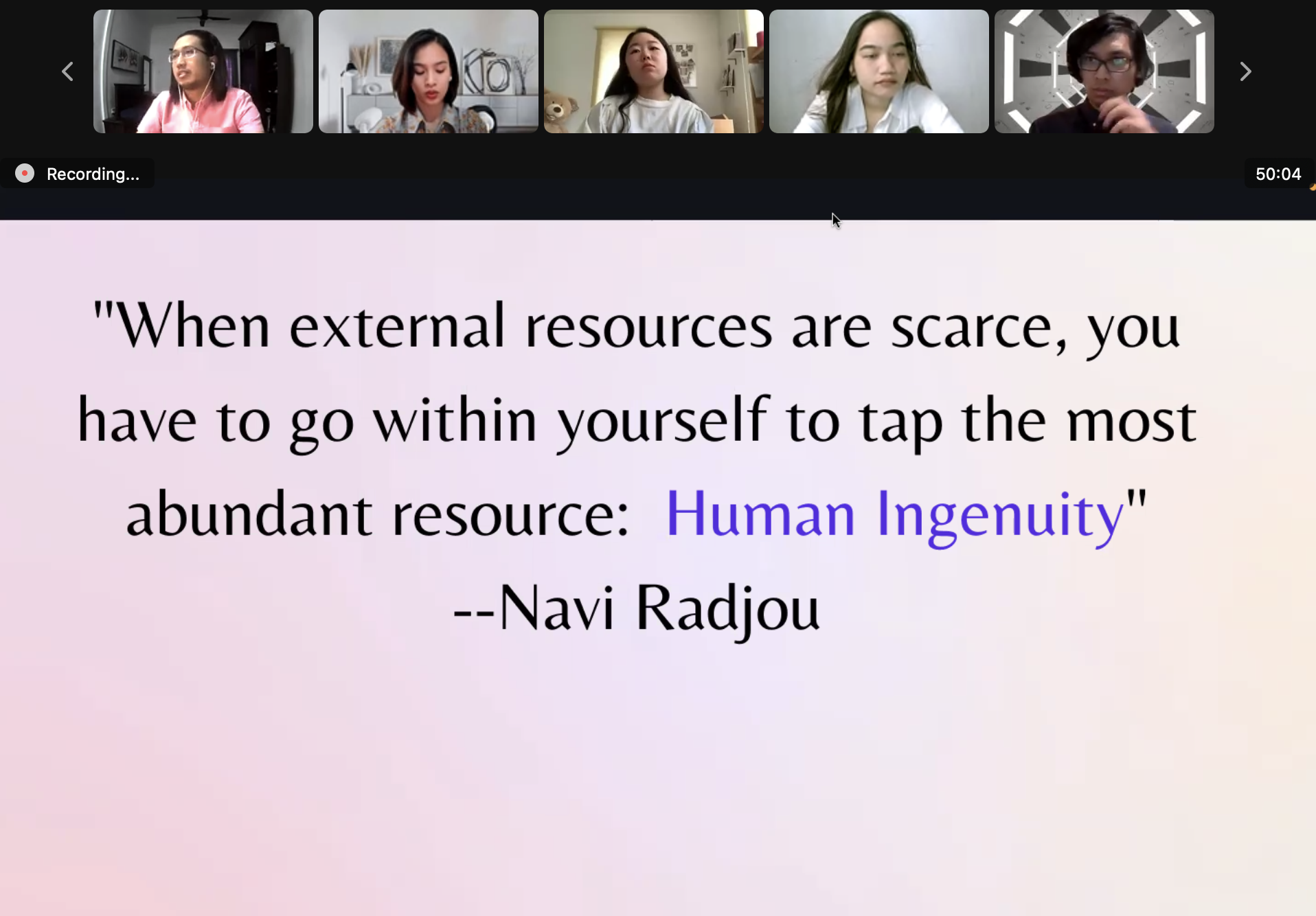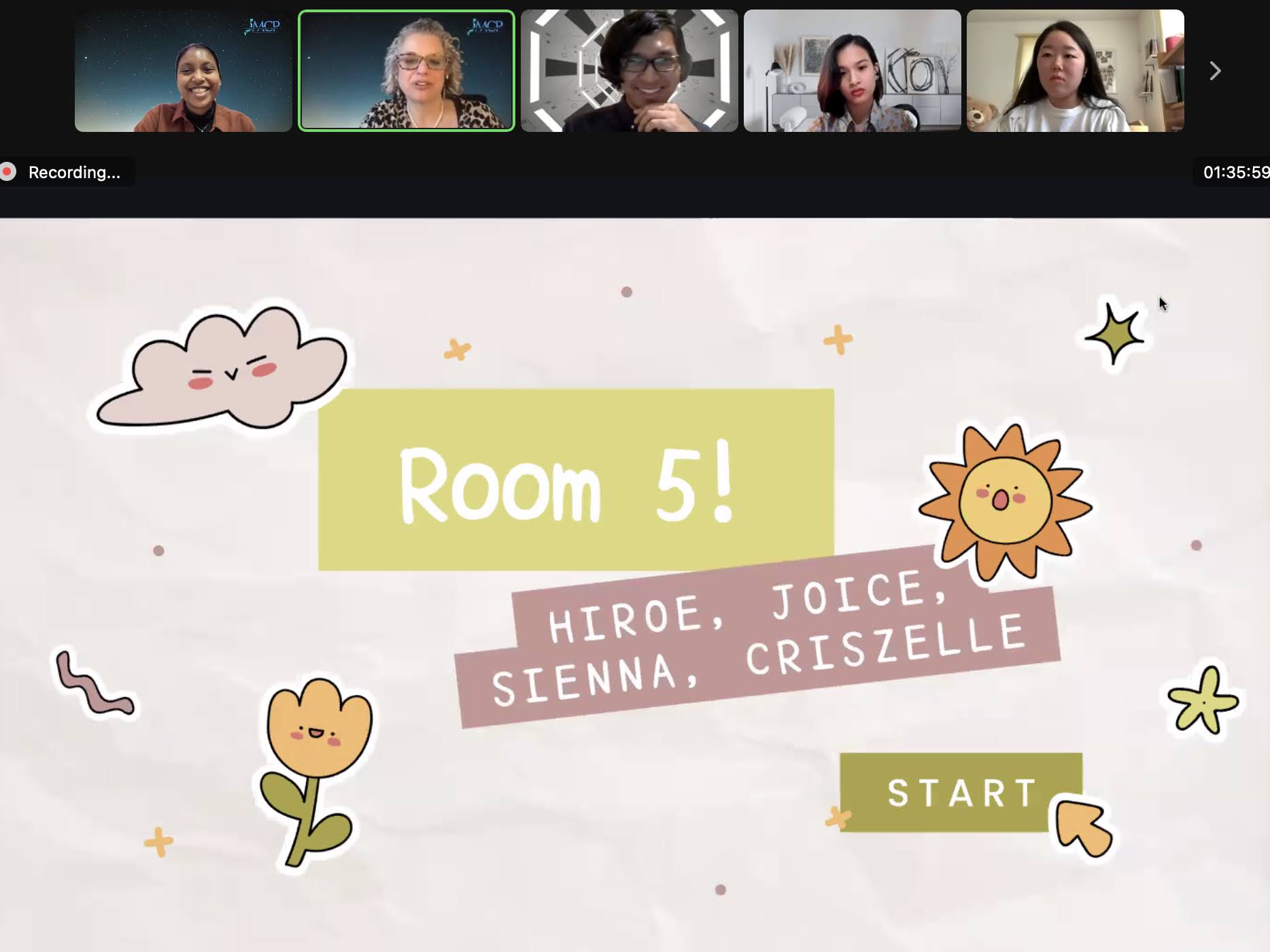2022.03.18Advanced Programs
21st Century Skills Program Week 5 (Part 2)
The students from both groups of the 21st Century Skills Program joined Prof Suzanne Orzech for their final live session before their group presentations. During the session the students revisited “the wisdom of geese” which talks about the way geese get from one place to another quicker and with less effort because they benefit from the momentum of the group moving around them. This concept should be mirrored by each team as they work collaboratively to prepare for their final presentation . Students were asked to reflect on their group work over the last few weeks and some of the characteristics displayed by team members to determine how well their teams were progressing. They looked at visibility among members, humility, did team members empower each other, praise and stand by each other during difficult times. The students reflected on this before moving on to their next activity.
“When external resources are scarce, you have to go within yourself and tap your most abundant resource, human ingenuity” - Navi Radjou

The topic for this lesson was “creativity”, more specifically creativity in the face of extreme need. The key word or expression of this lesson was the hindi word “jugaad” which means the art of overcoming harsh constraints by improvising an effective solution using limited resources. The students watched a short TEDTalk with presenter Navi Radjou titled “creative problem-solving in the face of extreme limits” which continued to explore the word “jugaad” and the ways in which it is expressed across different countries around the world.
This concept of creative problem solving connects with the students’ final project which focuses on the seventeen sustainable development goals outlined by the United Nations. After watching the video students were asked to work in groups to think of examples of frugal innovation in their own countries. In the instance of big tech; innovation is often scaled up, however with frugal innovation the idea is to scale outwards reaching people around the world who are in need of access to those services. Some examples given by students were bicycles made from sustainable materials, plastic bottles used as light bulbs and the “Pisonet” service in the Philippines, which gives the user access to one minute of internet with just 1 coin. The students shared their ideas and other thoughts on how the principles of jugaad can change the way in which society innovates.

This final lesson gave the students a much needed boost of creativity to help them complete their final group presentation.